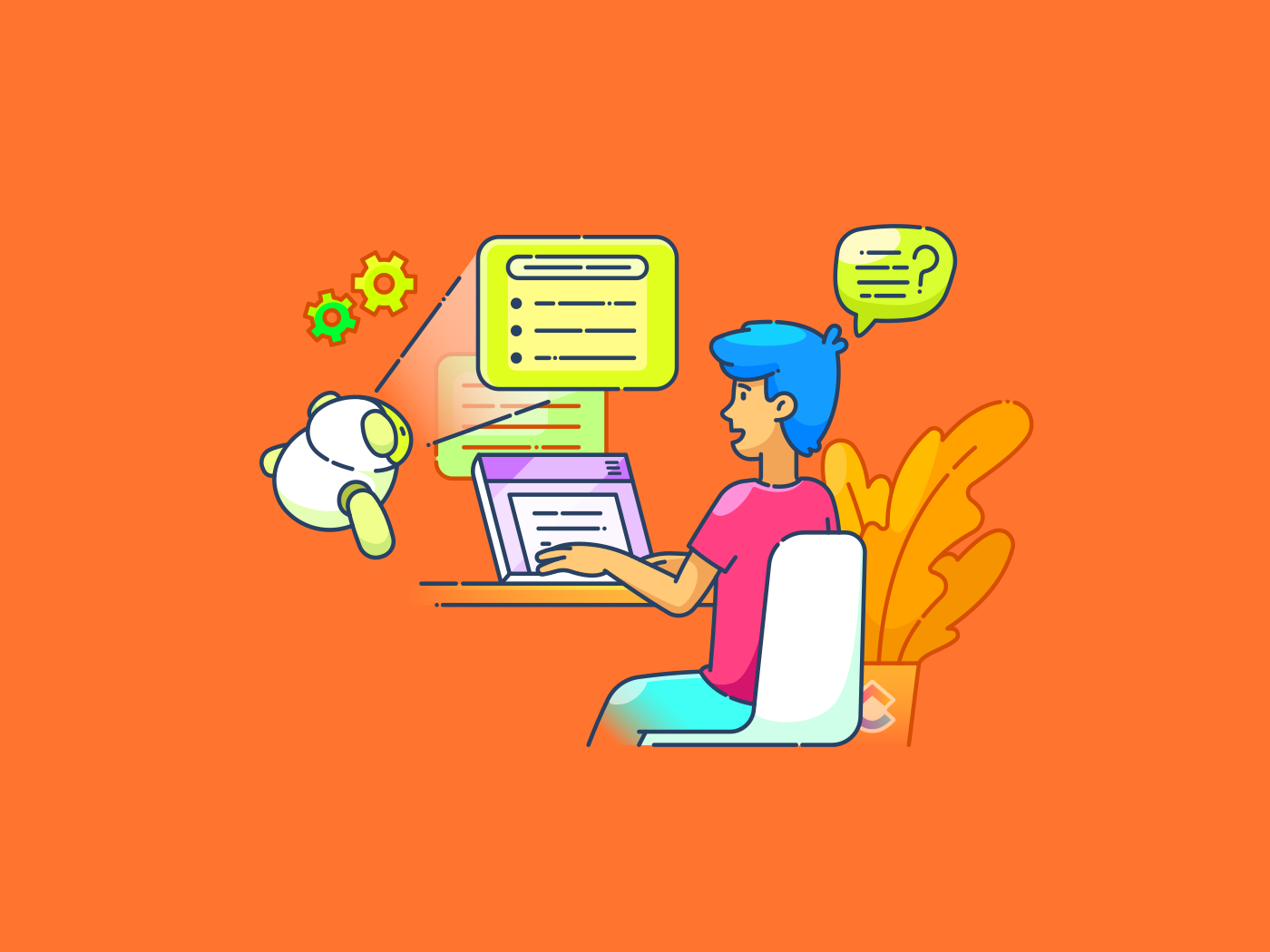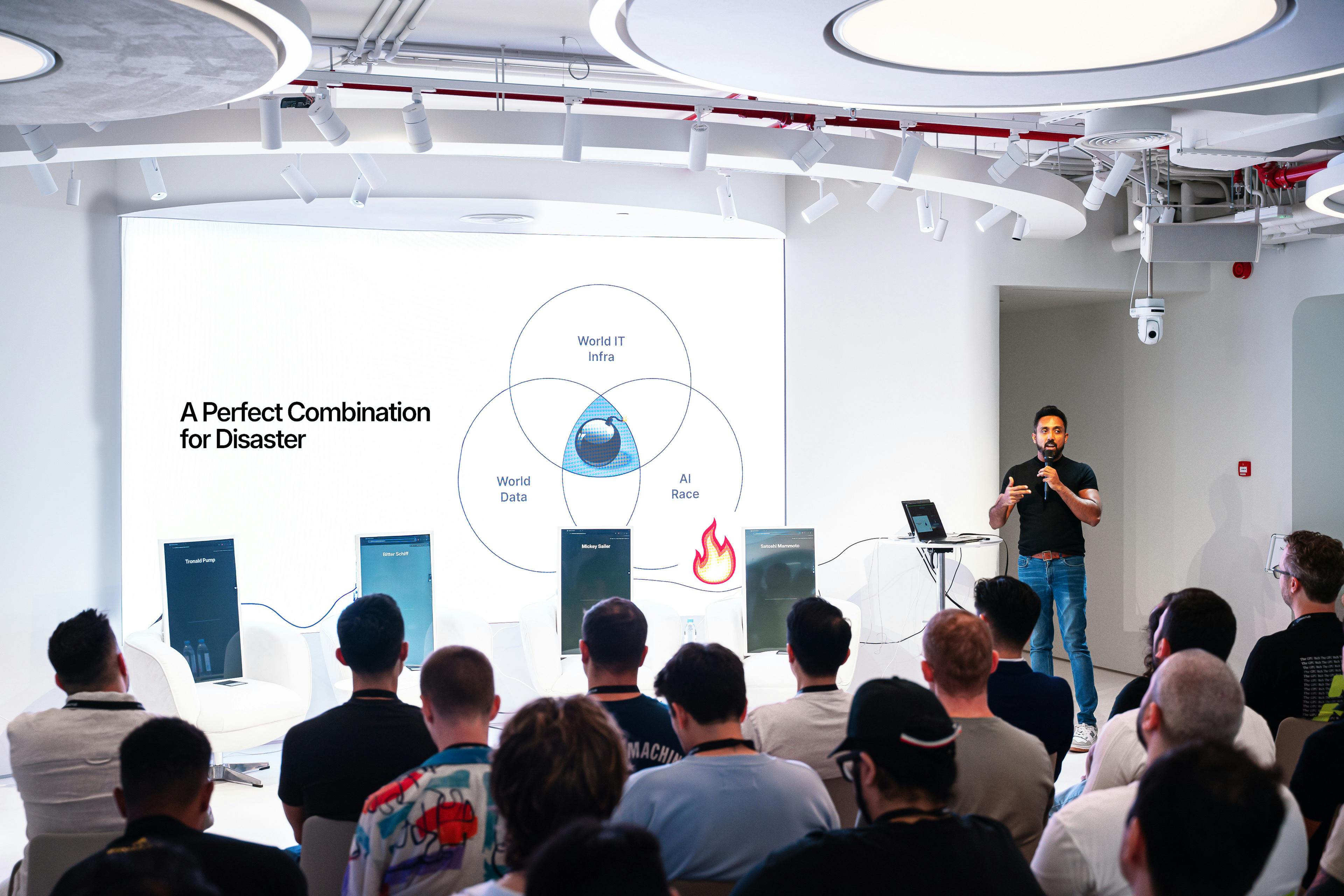Have you ever been to a hackathon where everyone’s building the next big AI business—generating images, crafting chatbots that sound too human—while you’re just trying to get your JavaScript to stop throwing a tantrum?
Feels like showing up to a sword fight with a rubber duck, doesn’t it?
But AI isn’t just for the pros. A few smart moves, and it can become your secret weapon. From automating code fixes to optimizing entire architectures, mastering AI can take your software development skills to the next level.
This article explores the best AI courses for software engineers that will help you build the future and not just debug the past!
Top 10 AI Courses for Software Engineers to Learn
Key Applications of AI in Software Engineering
While the world believes software engineering is about writing code, you know the truth is that it’s about writing smarter code.
Imagine an AI that writes boilerplate code, catches bugs before you do, or even suggests performance optimizations while you work. That’s not sci-fi; an AI engineer is making it happen right now. Here’s how:
✅ Code generation and auto-completion
AI-powered tools like GitHub Copilot and Tabnine suggest entire code snippets as you type, saving hours of work. Need a function? AI might just write it for you.

✅ Bug detection and testing automation
No more endless debugging! AI-driven tools analyze code patterns, catch errors before they break production, and even suggest fixes, saving you from cryptic stack traces.
✅ Natural Language Processing (NLP) for user experience
From chatbots to voice assistants, AI-powered natural language processing (NLP) makes apps smarter and more intuitive, improving how users interact with software.
✅ Predictive analysis
AI models detect performance bottlenecks, forecast system failures, and optimize resources before problems escalate.
✅ Automation of repetitive tasks
AI handles continuous integration and delivery (CI/CD) by automating testing, monitoring, and deployment, reducing manual work and downtime.
The bottom line is that AI adds innovation and efficiency to software engineering and data science jobs, making them easier.
How AI Enhances Software Engineering Efficiency
Simply put, AI makes you faster, smarter, and more efficient as a software engineer or developer. Here’s how it boosts your productivity at every stage.
🎯 Speeds up development
With AI-driven code suggestions, autocomplete, and automated debugging, you spend less time writing boilerplate code and more time on problem-solving.


🎯 Minimizes errors
AI-powered static analysis tools scan code for vulnerabilities, enforce best practices, and automatically suggest fixes, reducing security risks before they escalate.
🎯 Optimizes performance
AI analyzes system logs and usage patterns to anticipate breakdowns, recommend optimizations, and fine-tune infrastructure for peak performance.
🎯 Enhances collaboration
It also helps teams work smarter by suggesting best practices, recommending reusable code snippets, and providing real-time insights, making collaboration seamless.
How to Choose the Right AI Software Engineering Course
Picking the right AI course can feel like choosing a programming language—too many options, each with its own strengths. Here’s how to find the best fit for your career goals.
- Industry relevance: Align your interests with current software engineering trends by choosing courses that cover prompt engineering, fine-tuning large language models (LLMs), and reinforcement learning
- Prerequisites: Check for required knowledge in Python programming, linear algebra, or cloud computing, and start with beginner-friendly courses if you’re new to AI concepts
- Instructor credentials: Learn from industry leaders like Andrew Ng, who provide a solid foundation in AI training courses
- Hands-on projects: Choose courses with real-world scenarios, AI-driven development tasks, and automation exercises in interactive coding environments
- Learning style: Pick a course that matches your learning preference, whether it’s self-paced online learning or live mentorship
- Cost vs. value: Consider free online courses for a start, but invest in certifications from Coursera, Udacity, or edX if they add value to your career opportunities
💡Pro Tip: Choose courses that give an overview of AI governance and ethical considerations to efficiently manage the complexity of AI, especially if you are a beginner.
Top 10 AI Courses in Software Engineering
Whether you’re still wondering what the difference between generative AI and predictive AI is, or simply looking to level up your machine-learning skills, there’s something for everyone. Here are our top picks for AI training courses:
1. Deep Learning Specialization – DeepLearning.AI
Pricing: Free with Coursera signup
Level: Intermediate
Taught by Andrew Ng and other industry experts, the Deep Learning Specialization by DeepLearning.AI is a structured, hands-on program. It’s designed to equip you with the skills to build and optimize deep neural networks.
The course teaches you how to train models, optimize performance, and apply AI techniques to real-world tasks. Think: image recognition, NLP, and speech processing—all using Python and TensorFlow.
Here are the best features of this course:
- Access five courses, such as Neural Networks and Deep Learning, Improving Deep Neural Networks, Structuring Machine Learning Projects, Convolutional Neural Networks, and Sequence Models
- Get hands-on projects and real-world cases like speech recognition, machine translation, and image generation
- Learn neural networks, CNNs, RNNs, LSTMs, and Transformers, with a focus on both theory and application
- Access a shareable career certificate, LinkedIn integration, and ACE credit recommendation
2. Practical Deep Learning for Coders – fast.ai
Pricing: Free
Level: Beginner to intermediate
Want to get started with deep learning without drowning in complex math? The Practical Deep Learning for Coders course by fast.ai can help.
The course is designed for software engineers with basic coding experience who want to apply AI to real-world tasks like recommendation systems.
It focuses on practical implementation rather than heavy theory, making it ideal for beginners.
This course helps you:
- Build and deploy deep learning models for real-world applications like image classification and NLP
- Use cutting-edge tools like PyTorch, fast.ai, and Hugging Face Transformers
- Learn hands-on with interactive Jupyter Notebooks and free cloud resources—no expensive hardware needed
- Master deep learning concepts with a free, highly-rated book and expert-led instruction
3. CS50’s Introduction to Artificial Intelligence with Python – Harvard University
Pricing: Audit for free, verified certificate for $299
Level: Intermediate
The CS50’s Introduction to Artificial Intelligence with Python by Harvard University is designed to help software engineers and AI enthusiasts gain hands-on experience with AI principles.
Through projects, you will learn core AI concepts like graph search algorithms, LLMs vs. generative AI, and reinforcement learning in seven weeks. Taught by Harvard experts, this course is suitable for those looking to build a strong AI portfolio with Python-based tools.
Here are the highlights of this course:
- Learn AI fundamentals, including neural networks, optimization techniques, and LLMs
- Work on hands-on projects that strengthen your Python programming and AI problem-solving skills
- Study at your own pace with a structured curriculum that balances theory and application
- Apply AI concepts to real-world scenarios like NLP and reinforcement learning
📮 Insight: 13% of our survey respondents want to use AI to make difficult decisions and solve complex problems.
However, only 28% say they use AI regularly at work.A possible reason: Security concerns!
Users may not want to share sensitive decision-making data with an external AI.
solves this by bringing AI-powered problem-solving right to your secure Workspace. From SOC 2 to ISO standards, is compliant with the highest data security standards and helps you securely use generative AI technology across your workspace.
4. AI Programming with Python – Udacity
Pricing: $249/month or a four-month subscription for $846
Level: Beginner
AI Programming with Python by Udacity is your gateway to the world of artificial intelligence, even if you’re just starting. This beginner-friendly Nanodegree helps you build a strong foundation in Python while diving into essential AI tools like NumPy, pandas, and Matplotlib.
Over three months, you’ll learn how to train and deploy machine learning models. You will also work with neural networks in PyTorch and explore cutting-edge topics like Transformers for NLP.
Here’s what you get inside.
- Master Python fundamentals, including scripting, object-oriented programming, and automation
- Gain hands-on experience with data analysis and visualization
- Build real-world projects like image classifiers and deploy deep-learning models
- Learn deep learning frameworks like PyTorch and explore generative AI implementation
- Get career support to optimize your LinkedIn and GitHub profiles for AI job opportunities
👀 Did you know? ’s Autopilot Agents can take repetitive work off your plate by automating tasks and processes across your workspace! For example, you can set up an agent to automatically assign tasks, update statuses, or even send reminders—so your team can focus on what matters most. Just tell the agent what you want done, and it’ll handle the rest, saving you time and reducing manual effort. Pretty cool, right? 🚀


5. Machine Learning – Stanford University
Pricing: $6,056 for 10 weeks
Level: Advanced
If you’re serious about mastering ML, this is the course for you! The Machine Learning course by Stanford University is a deep dive into the fundamentals and advanced concepts of machine learning.
Led by instructors like Andrew Ng, this 10-week program is for learners with a bachelor’s degree in computer science or related fields.
It covers supervised and unsupervised learning, reinforcement learning, and theoretical foundations, providing the AI skills to build intelligent systems for real-world applications.
Here are the key reasons to choose this course:
- Get hands-on experience through projects, assignments, and a major term project
- Master advanced ML techniques like SVMs, clustering, PCA, and reinforcement learning
- Earn academic credits (4 units) and receive an official Stanford transcript
- Gain the expertise needed for AI research or high-impact industry roles
💡 Pro Tip: Stay current with the latest AI discussions by exploring relevant AI subreddits and following key AI influencers. This will help you keep your skills polished.
6. AI for Everyone – DeepLearning.AI
Pricing: Free with Coursera signup
Level: Beginner
AI for Everyone by DeepLearning.AI is a beginner-friendly course by Andrew Ng that explains AI in simple terms.
Ideal for non-technical professionals, it covers the basics of what AI can do and how it works. Get a better understanding of how to use it in real-world scenarios. You get a deeper read on AI’s impact and applications in just six hours.
Here’s what you get from this course:
- Learn AI fundamentals without any technical prerequisites
- Understand key AI concepts like neural networks, machine learning, and data workflows
- Discover how to identify and implement AI opportunities in your organization
- Explore real-world AI applications, from smart assistants to self-driving cars
- Gain a shareable certificate and upskill at your own pace
7. Machine Learning in Production – DeepLearning.AI
Pricing: Free with Coursera signup
Level: Intermediate
Machine Learning in Production by DeepLearning.AI is another intermediate-level course by Andrew Ng that teaches how to deploy and maintain ML models in real-world environments.
It helps you learn how to bridge the gap between theory and production, tackling challenges like concept drift, data validation, and model performance optimization.
Here’s what makes the course suitable:
- Master the end-to-end ML lifecycle, from scoping to deployment
- Understand MLOps (Machine Learning Operations) best practices for scalable, reliable ML systems
- Optimize models with real-world challenges like data quality and error analysis
- Gain hands-on insights into structured and unstructured data handling
8. Artificial Intelligence A-Z 2025: Agentic AI, Gen AI, and RL – Udemy
Pricing: $199 for lifetime access
Level: Beginner
Want to build AI but don’t know where to start? Artificial Intelligence A-Z 2025: Agentic AI, Gen AI, and RL course by Udemy is a hands-on course that teaches you how to build real-world AI applications from scratch.
Whether you are interested in reinforcement learning, generative AI, or self-driving technology, this 15-hour course walks you through seven exciting AI projects.
Here are some of its best features:
- Build AI models for self-driving cars, warehouse optimization, and medical chatbots
- Master reinforcement learning techniques like Q-learning and Deep Q-learning
- Get downloadable Python code templates for every project
- Gain lifetime access, including bonus content on Generative AI and LLMs, and discover practical ways to use AI tools for knowledge workers
9. TensorFlow Developer Professional Certificate – DeepLearning.AI
Pricing: Free with Coursera signup
Level: Intermediate
Stating the obvious, this one is for anyone looking to master deep learning with TensorFlow. The TensorFlow Developer Professional Certificate by DeepLearning.AI takes you from the basics to building real-world AI models for computer vision.
With 16 coding assignments and four in-depth courses, you’ll gain the skills needed for AI-powered applications—and even prepare for the Google TensorFlow Certificate exam!
What makes this course so good? Here are the key features:
- Learn TensorFlow best practices for building deep neural networks
- Train AI models for image recognition, NLP, and time series forecasting
- Get hands-on experience with RNNs, LSTMs, transfer learning, and data augmentation
- Work on real-world projects like generating poetry and forecasting trends
- Earn a shareable certificate to boost your AI credentials
10. Reinforcement Learning Specialization – University of Alberta
Pricing: Free with Coursera signup
Level: Intermediate
Want to build AI that learns from experience and makes decisions on its own? Reinforcement Learning Specialization by the University of Alberta is for you!
This four-course program, led by AI experts Martha White and Adam White, helps you master RL algorithms like Q-learning, Policy Gradients, and Monte Carlo methods—while coding real-world solutions in Python.
Why take this course?
- Learn essential RL techniques for adaptive AI and decision-making systems
- Build and train RL models with hands-on Python assignments
- Explore applications in-game AI, smart assistants, and supply chain optimization
- Connect RL concepts to deep learning and supervised learning
- Earn a University of Alberta certificate to showcase your expertise
💡 Pro Tip: Integrating AI in software development goes beyond just courses. Stay curious and experiment beyond the coursework. Tweaking models, testing different datasets, and exploring cutting-edge AI research sets you apart.
Implementing AI in Software
After mastering the fundamentals of AI, it’s time to put that knowledge into action.
, the everything app for work, helps you do this effortlessly. It combines project management, knowledge management, and chat—all powered by AI that helps you work faster and smarter.
For software engineers, transforms work by automating repetitive tasks, improving code quality, and simplifying workflows.
Whether you’re coding, debugging, planning sprints, or managing documentation, for Software Teams brings everything into one AI-powered workspace. Let’s break it down.
Brain, the in-house AI-powered assistant, makes it all happen.
Need a quick function or some boilerplate code? Just describe what you need, and the Code Snippet Generator generates clean, efficient code in seconds—whether it’s Python logic, regex patterns, or CSS snippets.


Tired of writing endless API docs, technical specs, or meeting notes? Brain automatically generates well-structured documentation, so your team stays aligned without manual effort.
Is that all the AI does? Absolutely not! Brain actually acts as your workspace’s brain.
With AI-powered algorithms, natural language processing, and pattern recognition, Brain analyzes task descriptions, documentation, and contextual data—all within your workspace. It identifies issues and automates bug reporting, reducing manual effort. Less work, smarter debugging!
You can also create instant bug reports by simply prompting, and you will have a detailed report within seconds.


These insights also help you plan future sprints. With Tasks, you can effortlessly plan, assign, and track sprints!
Brain suggests sprint goals using past data, breaks down epics into AI-generated subtasks, and assigns tasks based on skills and workload.


Want to brainstorm goals or store all your technical docs, product specs, and meeting notes in one place? Docs keeps it all fresh and accessible.
You can also use Brain to write technical documents, convert them into tasks, and collaborate with your team in real time. Pure convenience!


If all of this seems intimidating, also has a library of software development templates that can help you get started right now!
All in all, with Brain at your fingertips, you can focus on innovation while leaving repetitive tasks to automation. It’s everything you need to code smarter, plan better, and work faster.
Artificial Intelligence and Genuine Progress with
AI in software engineering is more than just a fancy add-on. It’s a powerhouse addition that automates the mundane, optimizes workflows, and helps developers focus on what really matters—building great software.
And when it comes to AI-powered productivity, is the ultimate cheat code! It streamlines code generation, bug reports, sprint planning, tracking, and engineering templates—all in one powerful workspace for software engineering tasks.
So why juggle multiple tools when you can let do the heavy lifting? Sign up for a free account today and experience the difference.


Everything you need to stay organized and get work done.










